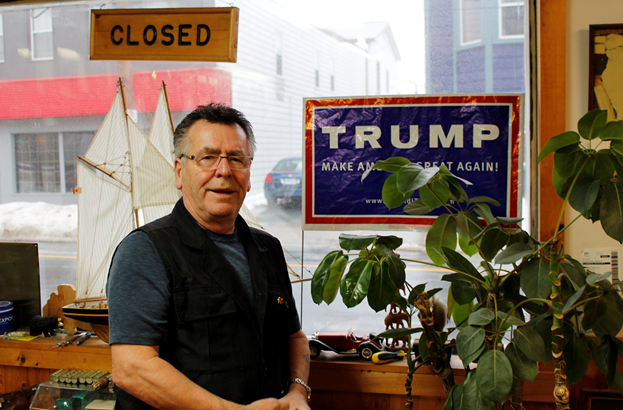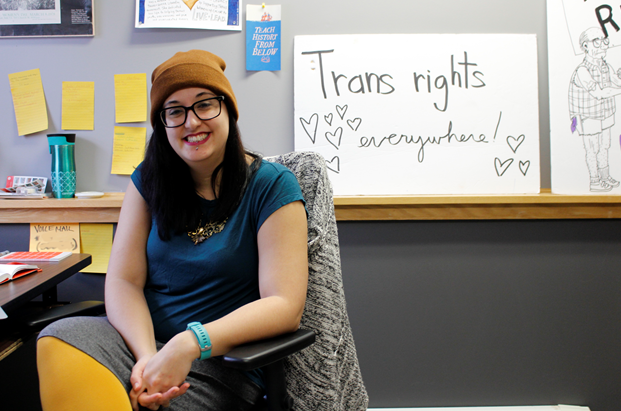U.S. Politics
Halifax activists react to barber’s windowsill Trump sign
With the sign on display at a local business, marginalized groups are wary

caption
Leroy Bennett, owner of Bennett’s Barbershop, standing next to his sign.
caption
Leroy Bennett, owner of Bennett’s Barbershop, standing next to his sign.A local barbershop has received criticism on social media for displaying a Trump sign in his window. The proprietor, Leroy Bennett, defends the sign, saying it’s “just a joke.”
“[It’s] just to get the people riled up … What have I got to do with the Trump down in the states?” says Bennett. “He’s in there, the sign can’t change anything else.”
Bennett says he received the sign as a gift from the son of a former Halifax police officer, who got it in the U.S.
Quentrel Provo isn’t laughing. Provo is an African-Nova Scotian anti-violence activist and a founder of Stop the Violence Brand.
Provo believes it’s “only a joke to certain people,” because there really are people in Nova Scotia that believe in Trump’s policies.
“[African-Nova Scotians] most likely will not enter his shop because of this kind of action,” says Provo to The Signal in a text message.
“We may not receive it as a joke,” he adds. “It shows a bit of ignorance as Trump is known as being racist at times.”
Provo says that while he feels the sign doesn’t affect him, he wouldn’t go into Bennett’s Barbershop.
“There’s always a message behind every joke,” he says. “The lesson in this joke is the ignorance that someone had to even think of putting a sign like that up as a joke.”

caption
Rebecca Stuckey, in her office at South House.Rebecca Stuckey is an outreach education coordinator at South House Sexual Health and Gender Resource Centre, and a Mi’kmaq woman. Stuckey wouldn’t even call it a joke. She believes it directly sends a negative message to Indigenous people, women, and other marginalized people.
“You’re creating an atmosphere of hate and bigotry in your place,” says Stuckey. “You’re allowing folks who have those views to come in and express them, creating a really harmful environment.”
Bennett says he has received negative feedback from women in particular. Trump has been criticized for sexist comments, and Bennett says, some women have suggested his pro-Trump sign is therefore sexist as well.
“But I said to one guy, ‘we tell women jokes, we carry on and talk about women, but I like women,’” says Bennett. “It’s no different if you went to a woman’s shop. They’re probably telling jokes about men.”
Stuckey isn’t surprised by this.
“This doesn’t really surprise me, that this would be this person’s view on things,” said Stuckey to The Signal in response to being told Bennett’s quote. “Clearly this person doesn’t realize their ‘jokes’, as they like to say that, aren’t actually okay.”
Bennett has received threats of boycotts, but has brushed them off.
“They said I was prejudiced, a white’s only shop. But I live in Cherrybrook, a black settlement. I lived there for over 45 years,” says Bennett. “I was never brought up with prejudice, because where I come from there’s no blacks, there’s no Jews… In the back woods of Newfoundland, you don’t see that stuff.”
To this, Provo responded to The Signal, “So why did he put up the sign then?”
Despite the criticism from it, Bennett continues putting up the sign. He removes it at night to prevent vandalism.
“They’re all nut costumers anyway,” says Bennett. “I don’t want those people in here anyway, if they’re that small minded.”
Disclosure: Jessica R. Durling facilitated a group that took place at South House in the summer of 2015. This was her first time meeting Stuckey.

